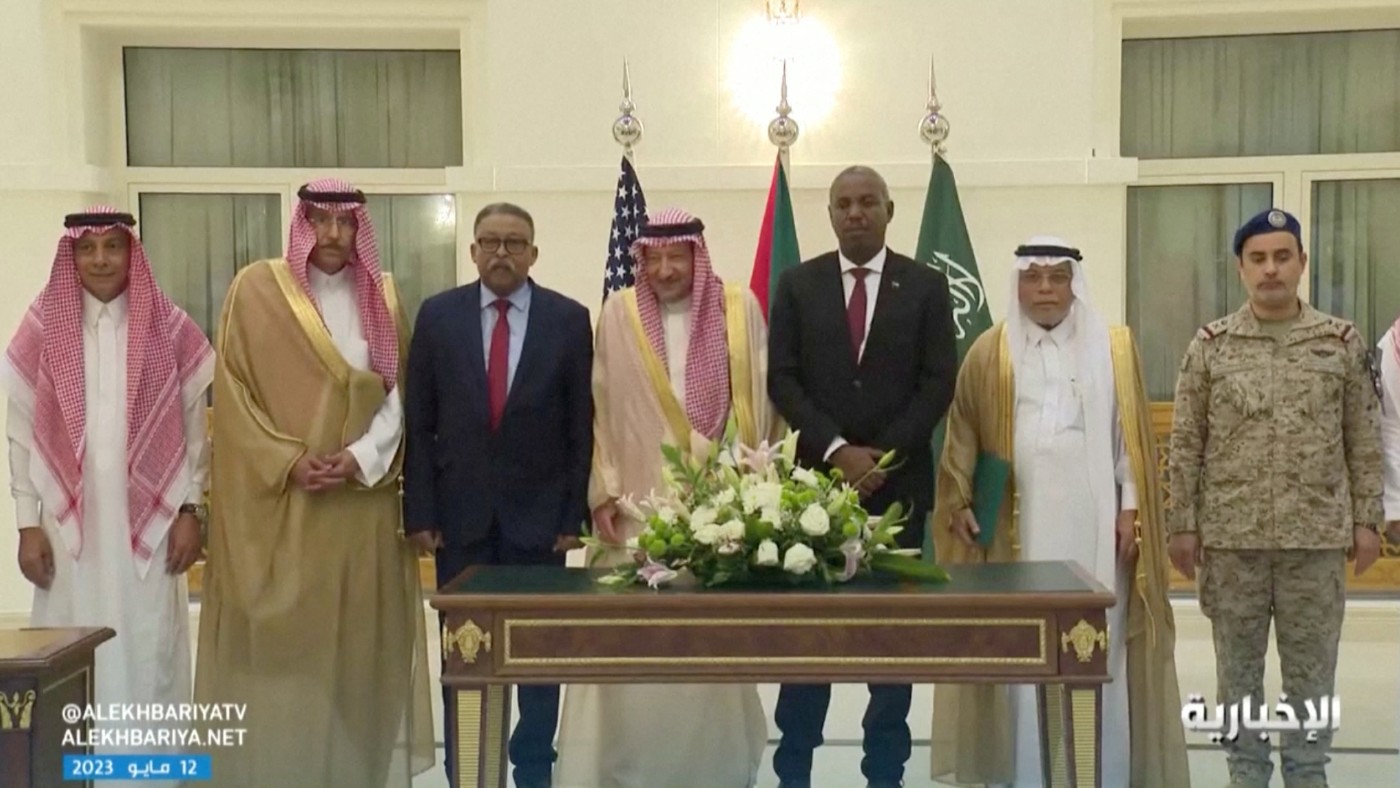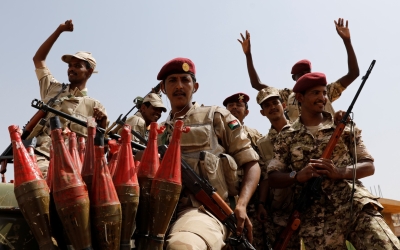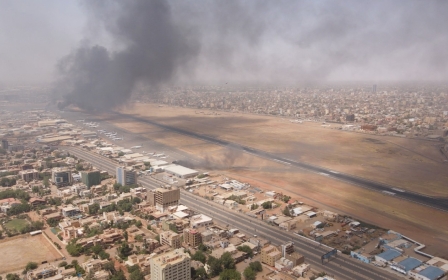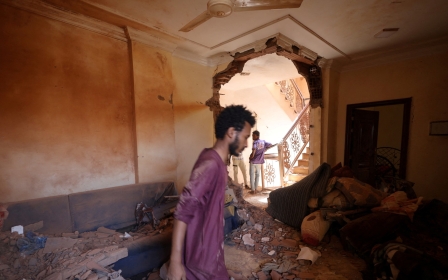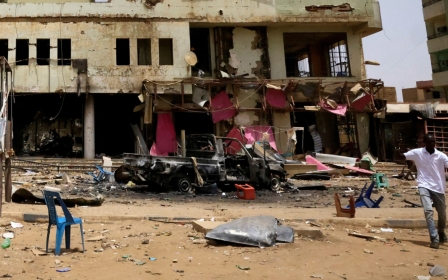Sudan crisis: Jeddah agreement branded 'meaningless' as fighting resumes
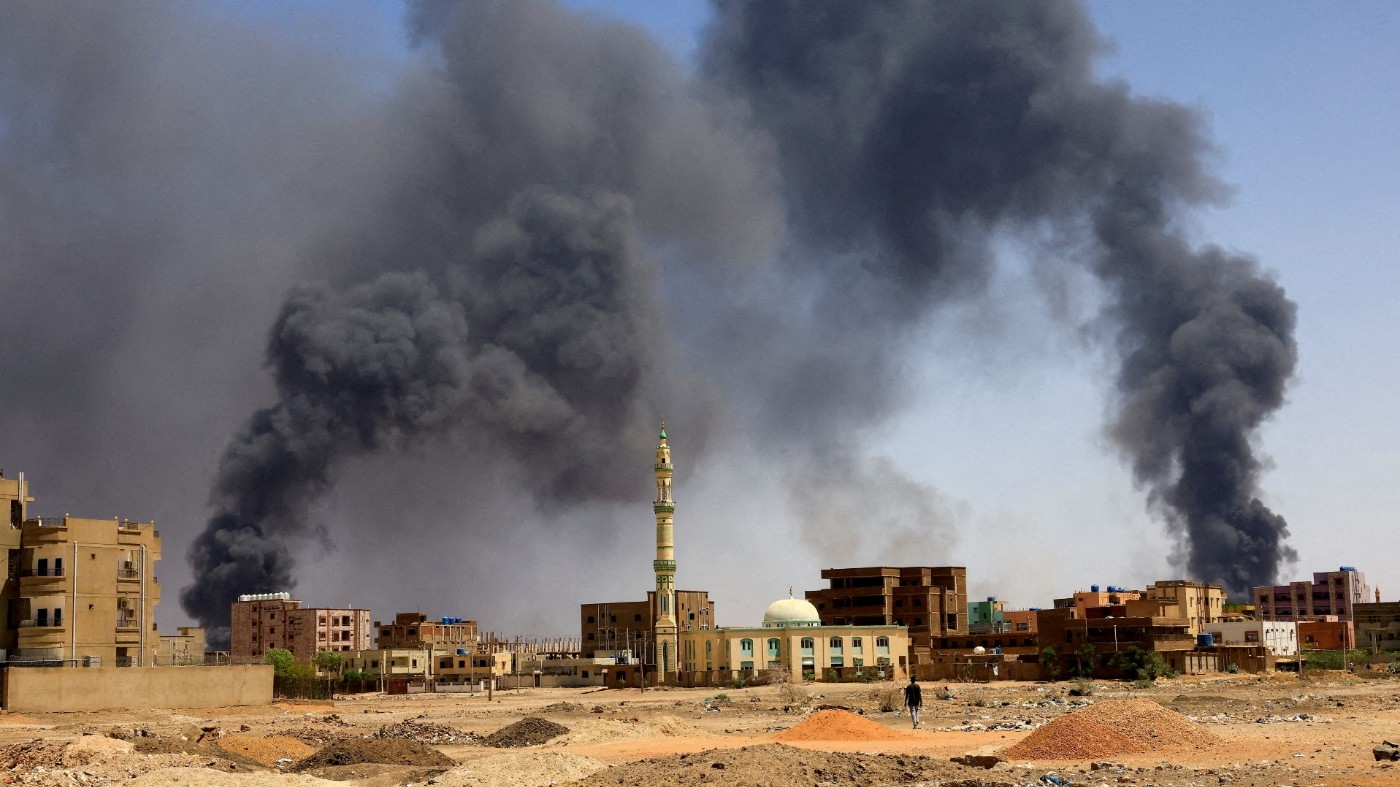
On Thursday night, a “declaration of commitment” was signed in Jeddah by Sudan's warring factions, following nearly a week of talks mediated by hosts Saudi Arabia and the United States.
This declaration was not a ceasefire. As if to underline that fact, the Sudanese army and the Rapid Support Forces (RSF) paramilitary returned to their war on Friday, with air strikes and artillery rounds pummelling the capital Khartoum.
None of the six humanitarian ceasefires announced by the United States and Saudi Arabia during the course of the conflict has so far held.
Neither Sudanese side has released a statement acknowledging the deal, which was signed on behalf of the army by Rear Admiral Mahjoub Bushra Ahmed Rahma and for the paramilitary by Brigadier General Omer Hamdan Ahmed Hammad, who is the brother of RSF chief Mohamed Hamdan Dagalo, better known as Hemeti.
The two men did not shake hands or even look at each other after signing the document, but instead posed for photos with Saudi officials while US negotiators hovered in the background.
On Friday morning, the RSF tweeted a video saying that its forces were “in the field and ready for any confrontation”.
At the same time, the UN refugee agency said that some 200,000 people have fled Sudan to neighbouring countries since fighting began on the morning of 15 April.
Middle East Eye has seen the English text of the Jeddah agreement and can confirm that it contains many grandly framed statements about the “wellbeing of the Sudanese people [being] our top priority” and the “responsibility to respect international humanitarian law and international human rights law”.
“The declaration basically confirms that both sides will continue to fight, they just promise now that they will fight in line with the laws of war," Karl Schembri, a spokesman for the Norwegian Refugee Council (NRC), told MEE.
"So, we are settling in for a long, protracted conflict."
The Jeddah text mentions Khartoum but not Darfur, where fierce fighting has been taking place for weeks and hundreds of people are believed to have been killed.
'These are two sides that are happily and readily choking a city to meet their ambitious ends'
- Kholood Khair, Sudanese analyst
On Friday morning, there were further reports of another attack taking place in El Geneina, the capital of West Darfur.
For weeks, residents have said that their town has been under siege by armed Arab militias and the RSF, according to Mohamed Osman, a Sudan researcher at Human Rights Watch.
The declaration is made up of seven commitments, the second and third of which contain a series of sub-clauses.
Both sides have agreed to distinguish “between civilians and combatants”, to allow medics and civilians to “safely leave areas of hostilities”, to “protect medical personnel and public installations” and to allow safe passage for humanitarian aid.
For the most part, it recognises what senior US State Department officials called “the obligations of both sides under humanitarian and human rights law to facilitate humanitarian actions to meet the needs of civilians”.
The officials referred to the talks as “pre-negotiations” and mentioned the need to “help begin the restoration of essential services like electricity and water”, which have been in desperately short supply.
The deal ends with a commitment to “prioritise discussions to achieve a short-term ceasefire to facilitate the delivery of emergency humanitarian assistance and restoration of essential services” and another commitment to “scheduling subsequent expanded discussions to achieve a permanent cessation of hostilities”.
There is no mention made of peacekeeping forces.
"We also see that there is a commitment to facilitate administrative processes related to aid delivery," Schembri, the NRC spokesman, said. "We are still waiting to see administrative procedures, such as issuing visas for international aid workers, facilitated and working."
Though it has been much trumpeted by Saudi Arabian media, Riyadh called the deal a “first step”. US officials said negotiations for a ceasefire would follow.
Diplomatic sources told MEE that the two sides remained very far away from a more meaningful agreement.
'Completely meaningless'
The declaration has been met with derision by many Sudanese. “It’s completely meaningless,” Hind Fadul, a Sudanese activist who had to flee Sudan in the wake of the fighting, told MEE.
Nisrin Elamin, a Sudanese academic, said the talks “legitimise war criminals”.
Kholood Khair, director of the Khartoum-based think-tank Confluence Advisory, told MEE the agreement was a “nothing sandwich” in which “incongruencies abound”.
In a US Senate hearing, Victoria Nuland, a State Department official, said the United States was planning to use sanctions, a threat that was not mentioned by US officials in Jeddah.
“Instead, public shaming of the sides is apparently meant to bring some measure of compliance,” Khair said. “These are two sides that are happily and readily choking a city to meet their ambitious ends.”
“Do you know what the absolute worst thing is?” Khair asked.
“It’s not that the agreement is sub-par and dashes hopes that it brings a ceasefire, it’s that some people in Sudan, having endured weeks of bombardment and craving an end to the hostilities, would think that this agreement actually is a ceasefire and take greater risks in their survival, thereby actually endangering themselves.”
Some Sudanese and international media outlets have reported that the agreement is a ceasefire that will last for ten days. In fact, ten days is the timeframe for reaching an agreement on a ceasefire.
While the army and RSF agreed in Jeddah to move out of private homes and other property, MEE has heard from a number of eyewitnesses in Khartoum that paramilitary fighters are still ensconced in residential areas, a claim the RSF denies.
With the army raining down air strikes and the RSF controlling most of Khartoum’s streets, the ten-day timeframe looks wildly optimistic.
Meanwhile, in Darfur, the violence gets worse as more actors are pulled into it and the army looks to leaders like Musa Hilal and Minni Minnawi to build an anti-Hemeti coalition on the RSF leader's home turf.
It may be that the only thing the Jeddah agreement shows is that high-minded declarations can immediately be put to one side.
Officials from the United States and Saudi Arabia had barely finished briefing the press before the fighting began again in Sudan.
Middle East Eye propose une couverture et une analyse indépendantes et incomparables du Moyen-Orient, de l’Afrique du Nord et d’autres régions du monde. Pour en savoir plus sur la reprise de ce contenu et les frais qui s’appliquent, veuillez remplir ce formulaire [en anglais]. Pour en savoir plus sur MEE, cliquez ici [en anglais].


